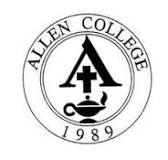What do they do?
Operate Magnetic Resonance Imaging (MRI) scanners. Monitor patient safety and comfort, and view images of area being scanned to ensure quality of pictures. May administer gadolinium contrast dosage intravenously. May interview patient, explain MRI procedures, and position patient on examining table. May enter into the computer data such as patient history, anatomical area to be scanned, orientation specified, and position of entry.
Also known as:
MRI Coordinator (Magnetic Resonance Imaging Coordinator), MRI QA Coordinator (Magnetic Resonance Imaging Quality Assurance Coordinator), MRI Radiographer (Magnetic Resonance Imaging Radiographer), MRI Specialist (Magnetic Resonance Imaging Specialist), MRI Tech (Magnetic Resonance Imaging Technician), MRI Technologist (Magnetic Resonance Imaging Technologist), Research MRI Technologist (Research Magnetic Resonance Imaging Technologist)
-
1.2%
Change
Ranks #51 in job growth rate100Job Openings
Ranks #12 in net job growth
Looking for colleges that offer a specific major? Use the College Match Tool to find your best-matched schools and discover your estimated Net Price!
- Bachelor's degree (37%)
- Associate's degree (34%)
- Some college, no degree (12%)
- Master's degree (9%)
- High school diploma equivalent (6%)
- Less than high school diploma (1%)
- Doctorate or Professional Degree (1%)
People in this career often have these skills:
- Reading Comprehension - Understanding written sentences and paragraphs in work-related documents.
- Active Listening - Giving full attention to what other people are saying, taking time to understand the points being made, asking questions as appropriate, and not interrupting at inappropriate times.
- Monitoring - Monitoring/Assessing performance of yourself, other individuals, or organizations to make improvements or take corrective action.
- Speaking - Talking to others to convey information effectively.
- Operations Monitoring - Watching gauges, dials, or other indicators to make sure a machine is working properly.
- Critical Thinking - Using logic and reasoning to identify the strengths and weaknesses of alternative solutions, conclusions, or approaches to problems.
People in this career often know a lot about:
- Customer and Personal Service - Knowledge of principles and processes for providing customer and personal services. This includes customer needs assessment, meeting quality standards for services, and evaluation of customer satisfaction.
- English Language - Knowledge of the structure and content of the English language including the meaning and spelling of words, rules of composition, and grammar.
- Physics - Knowledge and prediction of physical principles, laws, their interrelationships, and applications to understanding fluid, material, and atmospheric dynamics, and mechanical, electrical, atomic and sub-atomic structures and processes.
- Computers and Electronics - Knowledge of circuit boards, processors, chips, electronic equipment, and computer hardware and software, including applications and programming.
- Medicine and Dentistry - Knowledge of the information and techniques needed to diagnose and treat human injuries, diseases, and deformities. This includes symptoms, treatment alternatives, drug properties and interactions, and preventive health-care measures.
- Public Safety and Security - Knowledge of relevant equipment, policies, procedures, and strategies to promote effective local, state, or national security operations for the protection of people, data, property, and institutions.
- Education and Training - Knowledge of principles and methods for curriculum and training design, teaching and instruction for individuals and groups, and the measurement of training effects.
People in this career often have talent in:
- Oral Comprehension - The ability to listen to and understand information and ideas presented through spoken words and sentences.
- Oral Expression - The ability to communicate information and ideas in speaking so others will understand.
- Near Vision - The ability to see details at close range (within a few feet of the observer).
- Written Comprehension - The ability to read and understand information and ideas presented in writing.
- Problem Sensitivity - The ability to tell when something is wrong or is likely to go wrong. It does not involve solving the problem, only recognizing that there is a problem.
- Written Expression - The ability to communicate information and ideas in writing so others will understand.
People in this career often do these activities:
- Review technical documents to plan work.
- Review work orders or schedules to determine operations or procedures.
- Follow protocols or regulations for healthcare activities.
- Collect medical information from patients, family members, or other medical professionals.
- Create advanced digital images of patients using computer imaging systems.
- Operate diagnostic imaging equipment.
- Prepare patients physically for medical procedures.
- Position patients for treatment or examination.
- Check quality of diagnostic images.
- Administer medical substances for imaging or other procedures.
- Examine medical instruments or equipment to ensure proper operation.
- Train medical providers.
- Prepare reports summarizing patient diagnostic or care activities.
- Collaborate with healthcare professionals to plan or provide treatment.
- Explain medical procedures or test results to patients or family members.
- Maintain medical equipment or instruments.
- Repair medical facility equipment.
- Operate diagnostic or therapeutic medical instruments or equipment.
- Maintain inventory of medical supplies or equipment.
- Process x-rays or other medical images.
- Schedule patient procedures or appointments.
This page includes data from:

 Occupation statistics: USDOL U.S. Bureau of Labor Statistics Occupational Employment Statistics
Occupation statistics: USDOL U.S. Bureau of Labor Statistics Occupational Employment Statistics
 Videos: CareerOneStop, USDOL/ETA and the Minnesota Department of Employment & Economic Development
Videos: CareerOneStop, USDOL/ETA and the Minnesota Department of Employment & Economic Development















